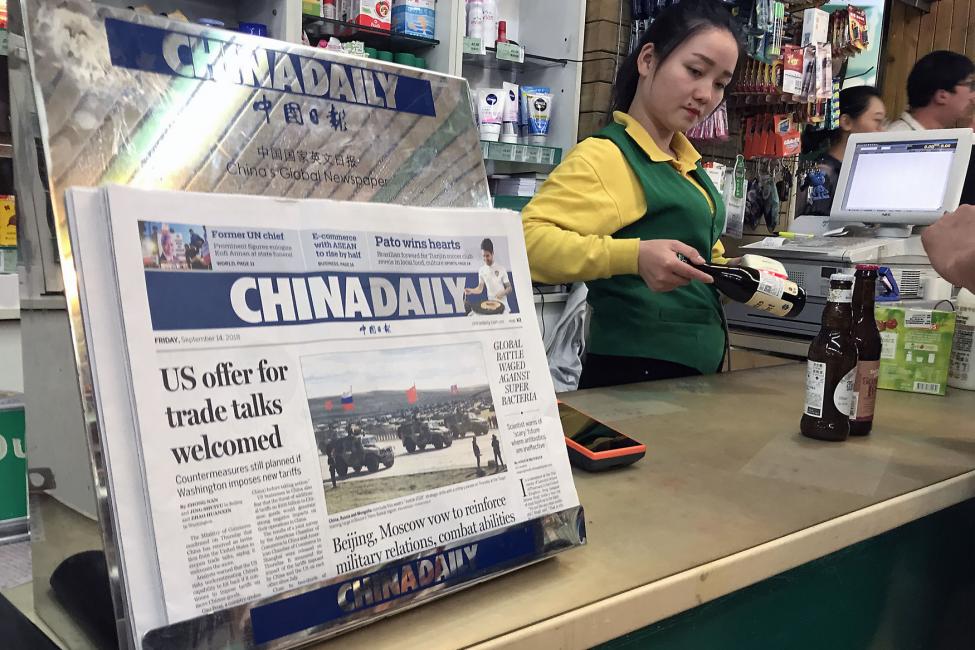The trade war between the United States and China again escalated Tuesday, as Beijing announced 10 percent tariffs on $60 billion in U.S. imports.
This comes one day after President Donald Trump announced a 10 percent tariff on $200 billion in Chinese imports starting next week. The U.S. administration said the tariffs will rise to 25 percent in January.
Trump reacted on Twitter, promising “great and fast economic retaliation against China if our farmers, ranchers and/or industrial workers are targeted.”
Trump added that many of those workers back his presidency, saying the Chinese tariffs are an attempt to influence U.S. elections. But, he said voters know China has been taking advantage of U.S. trade for years.
“They also know that I am the one that knows how to stop it,” Trump said in a Tweet.
Trump has threatened to “immediately pursue phase three,” which could include tariffs on another $267 billion of Chinese exports.
Beijing’s Ministry of Commerce criticized the United States and warned of “possible negative consequences” from “bad behavior.”
“We feel deeply regretful over the decision,” a ministry representative said Tuesday. “China will be forced to take synchronous countermeasures to safeguard our legitimate rights and interests as well as the global free trade order.
“[We] hope that the U.S. side recognizes the potentially harmful consequences of such an action and timely rectify the situation with convincing means.”
The new tariffs could also sidetrack trade talks in Washington, D.C., set for next week between U.S. and Chinese officials. Both sides had hoped to resolve the months-long conflict at the summit.
The South China Morning Post cited a source Tuesday who said Trump’s new tariffs will “likely” scuttle next week’s talks.
The government source said Beijing is reconsidering the plans to send Vice Premier Liu He to the United States.
“If the vice premier does go to the U.S., we can reasonably suspect he has a reasonable offer, but at this point, I would think the likelihood is low,” a U.S. business representative in Beijing said. (UPI)

